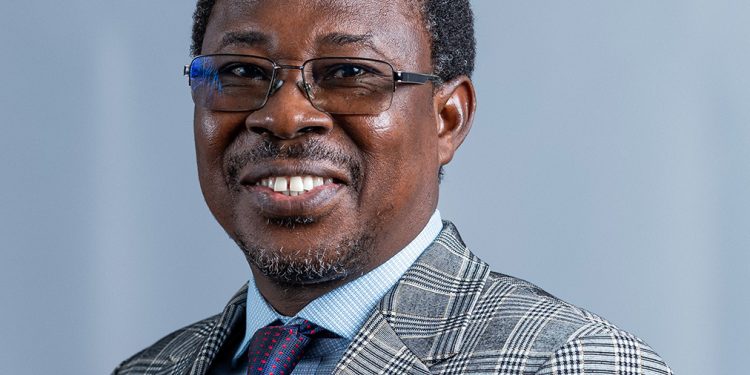Ghana’s Developmental Stagnation a Product of ‘Shared Complicity’ in Corruption, Says Professor Justice Bawole
Ghana’s stunted development trajectory is less the fault of corrupt elites alone and more the outcome of a collective failure by citizens and leadership to uphold ethical governance and accountability, the Dean of the University of Ghana Business School (UGBS), Professor Justice Nyigmah Bawole, has argued.
Delivering his inaugural lecture titled “Our Corruption, Our Ethics, Our Public Administration: Wicked Citizens, Wicked Problems, and Stagnating Development” on Thursday, July 10, 2025, Prof Bawole said Ghana’s persistent underdevelopment cannot be solely attributed to leadership failures but also the everyday practices of citizens that enable and normalise corruption.
“The claim that we are innocent victims of corrupt elites is no longer tenable. In fact, the everyday practices of citizens perpetuate a cycle of normalized corruption. Until we recognize our shared complicity, there can be no meaningful progress,” he remarked.
While underscoring the need to continue holding public officials and their private sector accomplices accountable, Prof Bawole stressed that systemic change will remain elusive unless the broader society also reforms its ethical compass.
Ghana’s Lost Developmental Promise
Using comparative development data, Prof Bawole highlighted Ghana’s stagnant trajectory relative to peers such as South Korea, Singapore, and Malaysia—nations that stood at a similar economic and structural level in the early 1960s.
In 1960, he noted, Ghana had advantages that outpaced its counterparts, including a well-educated elite, robust infrastructure, and significant natural resources. At the time, Ghana’s GDP per capita surpassed that of South Korea and was comparable to Malaysia’s.
“You can see on the screens now the graphs that show from 1960 the trajectory of four countries. Ghana has remained on the floor of the X-axis, on its belly,” he stated, lamenting that while others advanced rapidly, Ghana’s development curve remained flat.
Today, South Korea and Singapore are high-income economies, while Malaysia has attained upper-middle-income status. Ghana, by contrast, remains a lower-middle-income country, struggling on major human development indicators.
According to Prof Bawole, Ghana’s position on the Human Development Index (HDI) and Sustainable Development Goals (SDG) rankings further reinforces the country’s regression.
Lagging in SDGs and Life Expectancy
Presenting UN SDG rankings, he disclosed that Ghana placed 120th out of 167 countries with a score of 63.13. Comparatively, Singapore ranks 69th with a score of 71.5, Korea 34th (78.12), and Malaysia 84th (69.52). Within Africa, Ghana placed 10th—behind Mauritius, Gabon, and others.
“These rankings align with our study’s conclusion that Ghana is still a long way from achieving sustainable development goals,” he stressed, citing a 2012 study he co-authored that predicted Ghana’s poor SDG performance.
The country’s dismal life expectancy trends were also cited as further evidence of stagnating national well-being.
Anti-Corruption Reforms and Institutional Weaknesses
Despite modest progress, Ghana’s Corruption Perception Index and public sector effectiveness indicators remain unimpressive when compared with peers who adopted bold anti-corruption reforms decades ago.
Prof Bawole acknowledged that several institutional reforms have been rolled out in Ghana over the past three decades, particularly in the areas of accountability and capacity building. However, the performance of these institutions, he said, has been undermined by political interference, poor resourcing, and weak enforcement.
“Institutions without integrity, policies without legitimacy, and reforms without public trust do not create change,” he concluded.
The lecture called for not just technical reforms but a paradigm shift in political will, ethical leadership, and civic responsibility to break what he termed the “cycle of wicked problems” afflicting Ghana’s public administration and development progress.







